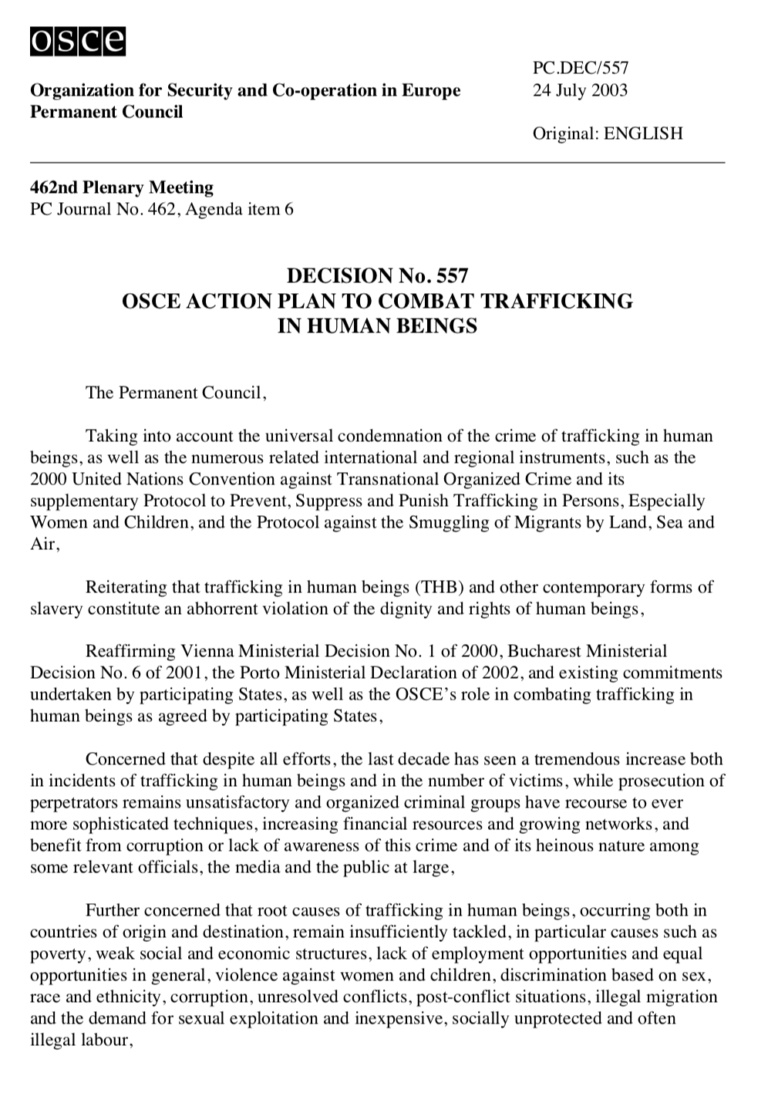The OSCE Action Plan to Combat Trafficking in Human Beings is a strategic, long-term toolkit. It comprises advanced and comprehensive recommendations in the areas of prosecution, prevention, protection, co-ordination, and partnerships. Taking into account the highly complex nature of human trafficking, these recommendations have been designed to help the participating States in their efforts to eradicate trafficking in human beings.
On prevention of trafficking in human beings in supply chains, the Action Plan recommends OSCE participating States adopt or review laws, administrative controls, and procedures relating to the licensing and operation of sectors of business that, according to intelligence, may be involved in trafficking, such as employment, tourism, au pair, adoption or mail-order bride agencies, and hotels and escort services.
In addition, the Action Plan advises OSCE participating States to increase awareness of trafficking in human beings in other relevant target groups, including policy makers, law enforcement officers, and other relevant professionals such as medical, social services and employment officials, and in the private sector, to enhance their readiness to address trafficking adequately and to strengthen their institutional capacity to counter it.

